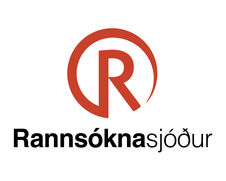Lögmætisáskorunin: Lýðræðistilraunir og
fulltrúalýðræði - verkefni lokið
Fréttatilkynning verkefnisstjóra
5.8.2021
This thesis takes an
epistemic systems approach grounded in the normative idea of Republicanfreedom to the question about the normative legitimacy
of empowering randomly selected minipublics.
Over the last two decades
many theorists and activists have argued that that electoralrepresentative democracy is in a crisis and that one of
the ways to deal with that crisis is to infuse thecurrent system with randomly selected mini-publics.
Others have argued that there are deepernormative problems with the current scheme of electoral
party politics where citizens get to choosebetween competing elites every four years, and that
these problems cannot be solved by tinkeringwith the current system. What is needed is a new
democratic system that replaces electoralrepresentation with sortition, i.e., representation via
random selection or lottery.The thesis seeks to present and defend the latter
conclusion. Such a system would involve a schemeof multi-body sortition that must be coupled with a
strong well-ordered public administration and aprofessional executive branch which is monitored by the
randomly selected citizens. At the sametime the design needs to have in place robust
safeguards against various problems such astechnocratic and bureaucratic capture and provide
extensive mechanisms for citizens to influencethe political agenda including veto mechanisms.While each part of any democratic system must meet with
basic legitimacy requirements, systemiclegitimacy should not be thought of as binary
proposition, but a gradient. For this purpose, the thesisdevelops a definition I call the systemic legitimacy benchmark to
be used for comparing systemslegitimacy and can also be applied to guide changes and
design of systems. Through this approach Iconclude that a system properly designed from the
ground up to facilitate system Sortition can bemore normatively legitimate than electoral
representative democracy. We must not forget thatsortition is still representative democracy, albeit
with a different selection method that can whencoupled with deliberative procedures produce good
outcomes. However, on its own it lacks much ofthe legitimizing force of the voluntarism and
mobilization involved in the current system. And thismust be compensated for in its design.Barring extraordinary circumstances and a paradigm
shift in political thought, democratic systemstend to evolve over time in an uncoordinated manner
under pressure from different actors, interests,and ideas. A transition to a viable and normatively
legitimate sortition based political system involvessuch radical systemic changes that it could take
decades. Therefore, using the systemic legitimacybenchmark, this thesis concludes by offering normative
guidance and practical suggestions for howto legitimately embed various forms of sortition bodies
to the political system, regarding the designof these bodies and their roles in the overall system,
with the aim of transitioning from our currentelectoral system to a new and sortition based system.Application
Citizen assemblies and other randomly selected
mini-publics are now being held in countries all overthe world and many theorists and activists see
sortition as the way forward to tackle the crisisrepresentative democracy is currently in. This research
project offers both theoretical insights andpractical guidance relevant to the design of randomly
selected democratic bodies and democratic systems that should also be useful transition to
a viable and normatively legitimate sortition basedpolitical system.
List
of outputs other than the monograph itself.
— (2017. March 11) Uppljóstranir og áróður [Paper
presentation] Hugvísindaþing 2017— (2017. June 4) Elected vs. Randomly Selected Constitutional
Assemblies [Presentation given at]Congress on Iceland’s Democracy at Berkeley Law School
— (2017. September) An Epistemic Systems Approach to Randomly
Selected Mini-Publics [Paperpresentation] Facts and Knowledge in Democratic
Politics, MANCEPT Workshops— (2017. October) 'Deliberative Mini-publics, Victims of Success?'
Democracy faces climate change:Prospects and consequences, Experiments in Democracy.
Reykjavík
— With Paul Mcloughlin. (2018. March 7) One Letter and Six Months: a comparison the
effects the aftermath the crisis financial crisis of 2008 on
democracy,
[Paper presentation]
PhilosophicalPerspectives on Contemporary Ireland, Dublin University
Collage.
— (2018. March 10) Þátttaka, slembival og krísa fulltrúalýðræðisins
[Paper presentation andworkshop organizer] Flokkadrættir og málamiðlanir:
Hugvísindaþing 2108:
— (2018. May 10-11) [group discussions] Political
Epistemology Network Workshops, LondonUniversity Collage, Senate House.
— (2018. June 9) Fulltrúalýðræðið og fáveldislögmálið [paper
presentation] the Humanities PhD andPost-doc conference University of Iceland
— (1028. September 10) Sortition: a new technocracy?
[Paper presentation] Democracy,Technocracy and the Role of Citizens:
MANCEPT-workshops.
— (2018. September 27) Randomly selected constitution
framers [conference panel] The Future ofPublic Engagement: Democratic Constitutional Design
— (2018. October 7) Getum við núna talað um Icesave?’ Hrunið, þið munið
— (2018) Uppljóstranir eða áróður, Saga, 56. árgangur 2018, (1)
[Artichle based on 2017 conferencepaper]
— (2019, May 25) Slembifulltrúastjórnmál, tækniræði og
skrifræði [paper presentation] theHumanities PhD and Post-doc conference University of
Iceland
— (2020) The DCD podcast, 8 episode inquiry into
deliberative poll and other episodes on democraticinnovation [Host and producer] published through the
DCD research project.
— (2020 September 19) „We value your Privacy“ [paper
presentation and organizer] Lýðræðið íbergmálshellinum: Hugvísindaþing 2020
— (Forthcoming) Voice, Exit and Technocracy,[ based on
paper presented in 2018 Sortition: a new technocracy?]
— "'Deliberative Mini-publics, Victims of
Success" Victims of success" [I originally began work on in2017 and have sent it to two publications and am
hopeful about publication in 2021]
— (two papers in a final stage intended for domestic
publication) An
Epistemic Systems Approach to Randomly Selected Mini-Publics and
Should
Constitutional Citizen Assemblies be Constitutionalized? Lessons from the Icelandic Constitutional Revision Saga
Heiti
verkefnis: Lögmætisáskorunin: Lýðræðistilraunir og fulltrúalýðræði/ Legitimacy
puzzles: Deliberative Mini-Publics and Representative Democracy
Verkefnisstjóri: Sævar Ari
Finnbogason,
Háskóla Íslands
Tegund styrks: Doktorsnemastyrkur
Styrktímabil: 2017-2019
Fjárhæð styrks: 17,395 millj. kr. alls
Tilvísunarnúmer Rannís:
174479


